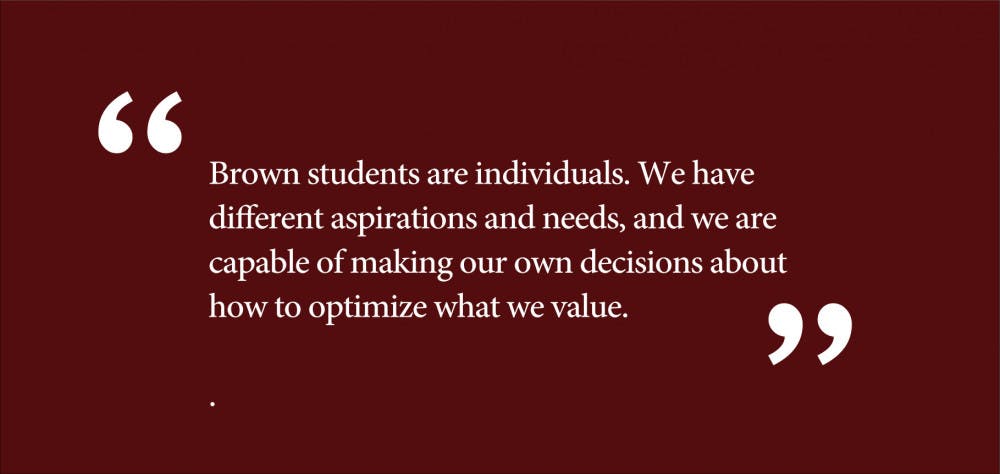Earlier this week, Aidan Calvelli ’19 wrote a column calling to ban consulting firms from campus, arguing that “the mad rush to help rich companies get richer obscures a search for employment animated by an independent quest for meaning and social fulfillment.” But Calvelli’s argument relies on two seriously flawed assumptions. First, students who consider salary as a part of the decision to take a job in consulting do so because of the love of money, rather than the need for it — he implies that students in consulting “sell out in a spirit of greed and cynicism.” Second, self-actualization is a greater end than earning a large salary, and therefore should be prioritized in career decisions. Calvelli concludes that the University should protect us from opportunities that appeal to the desire for money. I want to show that these assumptions are misguided, and that banning consulting groups from campus would only be deleterious to students’ freedom to choose what is best for us.
Calvelli insinuates that students who take consulting jobs are sellouts because consulting is a lucrative career. The implication here is that students choose this job over other pursuits because we want money more than we want to make a positive impact on the world around us. Perhaps, at the age of 21, Calvelli is able to prioritize a job’s fit for his “individuality” over its ability to pay his bills. However, this is not the case for all of us. I took a job in consulting because I have to support myself when I graduate, and so my salary matters to me. Other students I know want consulting jobs because the remuneration would allow them to pay off student loans and support extended family. Calvelli’s suggestion that all students who choose a consulting job because of its salary are motivated by greed comes from the incredibly privileged assumption that students do not need to make practical and financial considerations when choosing a job.
Not only is it privileged to assume that all students can share his same priorities, but it is also intolerant to believe that all students should have these priorities. Choosing a job based on its conduciveness to your self-growth is certainly admirable, but wanting to earn a salary than can support your family, pay off your loans or pay for your continued education is equally praiseworthy. Practical reasons aside, consulting appeals to many students because it can springboard us into positions of influence once we leave our firms, including positions in careers that speak to our passions and goals to help our communities. In fact, many graduates spend only three years at a consulting firm before leaving to pursue graduate school or another career. Thus Calvelli’s cited data, which breaks down graduates’ employment plans only for the year immediately after graduating, is misleading when trying to understand what Brown students end up contributing to the world in the long run.
Brown students are individuals. We have different aspirations and needs, and we are capable of making our own decisions about how to optimize what we value. Arguing that consulting groups should be completely banned from campus implies that individual students aren’t capable of upholding other values when faced with an opportunity to make money, and so the University should protect us from temptations that will lead us to make bad decisions. But we do not need the University to make decisions for us. Students who enter consulting make this choice because it aligns with our goals, and not because interactions with recruiters cause us to lose our powers of independent decision-making.
Of course, the University should make every effort to ensure that all students have the opportunities we need to start careers that fulfill our interests and passions. This requires ensuring that a diversity of organizations recruit on campus, and that students are aware of these opportunities. However, this does not require banning groups that are of interest to a large population of students. The job of the University is neither to prescribe moral hierarchies nor to impose its values on its students, and so Calvelli’s proposal that it paternalistically preempt students from applying to careers of our choice is unwise.
Alexa Clark ’19 can be reached at alexa_clark1@brown.edu. Please send responses to this opinion to letters@browndailyherald.com and op-eds to opinions@browndailyherald.com.





